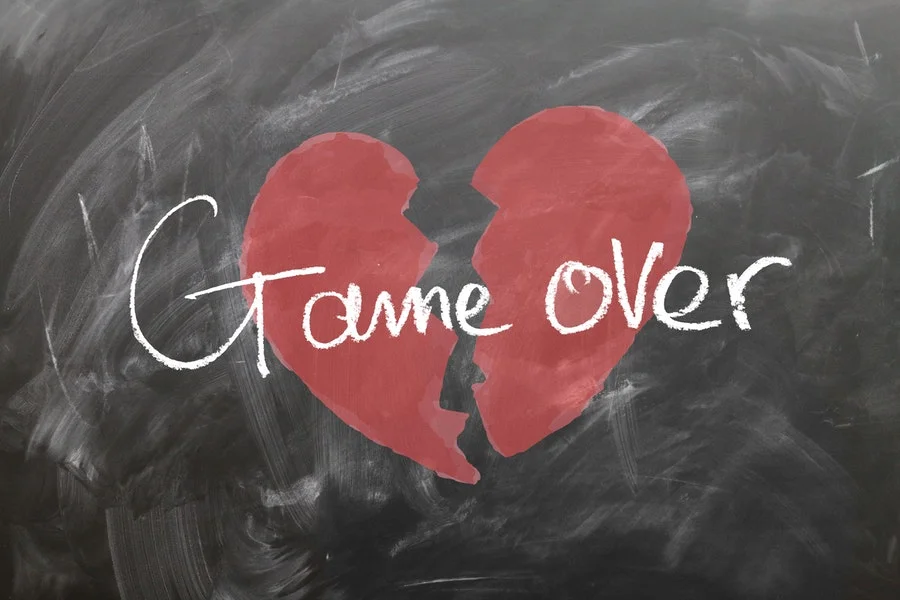Really?? Is that a typo error? Or did you mean the power of positive(!) thinking?
Nup, you got it right the first time! The power of NEGATIVE thinking - and yes, negative thinking has its merits. Just like all fads, positive psychology, and emphases on positive thinking may be the route towards falling flat on what is a natural and self-preservative way of perceiving and viewing things/ situations.
“Pessimists fare better than people with a sunnier disposition”
Day 5: "Positive thinking" the new delusion of the positive psychology movement [Potentially controversial]
Consider this for a moment, that if we were to try and turn our thoughts away from reality, and possibly to delude ourselves into thinking that there's always a silver lining somewhere, what does this sound like? Okay, some might say it's a skeptic's view...or it's just wordplay... but hey, you wouldn't be reading this if this didn't interest you one bit. Look, let's set aside the critics for a sec and focus on the validity of this claim.
Whilst not the warmest of Christmasy articles as a 5th day of Xmas gift, we're not about providing to our readers what you want to hear, but what you might need to hear...so take it with a pinch of salt if you will.
Clinical experience has taught us that there is concern about rational thinking and what it does or does not do for our emotions. An impetus to encourage our clients to think rationally (or worse, positively) may easily and unintentionally nudge them into dangerous territory. In fact, decades of research had found that positive thinking isn't always so positive.
Overconfidence?
Married couples who were extremely optimistic about their relationship’s future were more likely to experience relationship deterioration. Optimism may also be tied to lower earnings. A study of data from British households found that across two decades, especially optimistic self-employed people earned about 25 percent less than their pessimistic peers. And National Cancer Institute researchers found that people who lowballed their risk of heart disease were more likely to show early signs of it. Homeowners who underestimated their chances of radon exposure were less likely to buy radon test kits than were those with a more realistic sense of risk—their optimism left them vulnerable.
Optimism can beget disappointment
In one study, psychology students were surveyed immediately before and after receiving exam results. Students who had anticipated a higher grade than they received were upset after learning their score; students who had underestimated their grade (i.e., the pessimists) felt better afterward.
Social benefits of embracing negativity
Compared with cheery moods, bad moods have been linked to a more effective communication style, and sadness has been linked to less reliance on negative stereotypes. Feeling down can make us behave more fairly, too. People who saw sad video clips before playing an allocation game were more generous with their partners than those who saw happy clips.
Interesting research conducted in the 1980s by two University of Michigan researchers described a strategy called "defensive pessimism", whereby people harnessed their anxiety for good. A pair of follow-up studies found that by setting low expectations and envisioning worst-case scenarios, defensive pessimists optimised their performance on a variety of tasks, from darts and math problems to fulfilling real-life goals.
If you think about it, these strategies may already be at work in our lifetime but we're just not aware of how trying to compensate for our vulnerabilities and insecurities may lead us to finding a way (and sometimes more effective ways) to get past our hurdles. This phenomenon has been shown in a 30-year study of more than 10,000 Germans found that older adults who had underestimated their future satisfaction were less likely than their optimistic peers to end up disabled or die prematurely. Yes, morbid, I know.
In summary, defensive pessimism (and negative thinking) isn't exactly a new way of responding to and coping with situations. Sarah Adler proposed a revision to the old maxim - "Forget about hoping for the best. Instead, focus on preparing for the worst"!
Take home message
- Consider an alternative way of thinking, instead of always (being socialised to) thinking positively. Remember, fads will eventually fade away, but your negative thoughts will remain.
- Consider reflecting on why these thoughts remain active, and if its themes say more about what may be a big deal to you.
- Consider its relevance in your life, don't judge it, but be courageous... try and understand it.
- Remember, it has been argued by the great Analyst, Prof Jeremy Holmes, that the most important psychological protective factor may well be our capacity for reflective thinking.
Special Thanks
To Sarah E. Adler, of The Atlantic, for her original article and research into the topic that sparked this article.
References
Neff and Geers, “Optimistic Expectations in Early Marriage” (Journal of Personality and Social Psychology, July 2013)
Dawson et al., “The Power of (Non) Positive Thinking” (Institute for the Study of Labor, July 2015)
Ferrer et al., “Unrealistic Optimism Is Associated With Subclinical Atherosclerosis” (Health Psychology, Nov. 2012)
Weinstein and Lyon, “Mindset, Optimistic Bias About Personal Risk and Health-Protective Behavior” (British Journal of Health Psychology, Nov. 1999)
Sweeny and Shepperd, “The Costs of Optimism and the Benefits of Pessimism” (Emotion, Oct. 2010)
Koch et al., “Can Negative Mood Improve Your Conversation?” (European Journal of Social Psychology, Aug. 2013)
Lambert et al., “Mood and the Correction of Positive Versus Negative Stereotypes” (Journal of Personality and Social Psychology, May 1997)
Forgas and Tan, “Mood Effects on Selfishness Versus Fairness” (Social Cognition, Aug. 2013)
Norem and Cantor, “Defensive Pessimism” (Journal of Personality and Social Psychology, Dec. 1986)
Norem and Illingworth, “Strategy-Dependent Effects of Reflecting on Self and Tasks” (Journal of Personality and Social Psychology, Oct. 1993)
Spencer and Norem, “Reflection and Distraction” (Personality and Social Psychology Bulletin, April 1996)













What a year - what goes on from here?